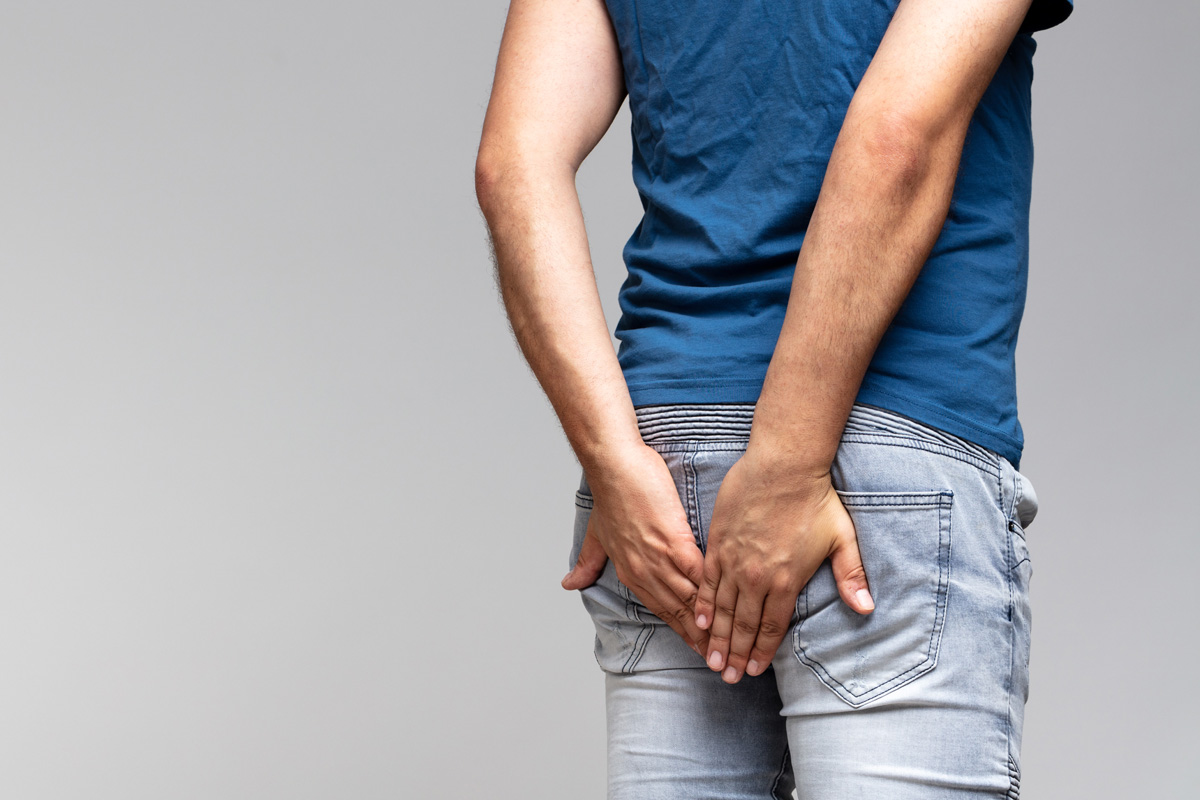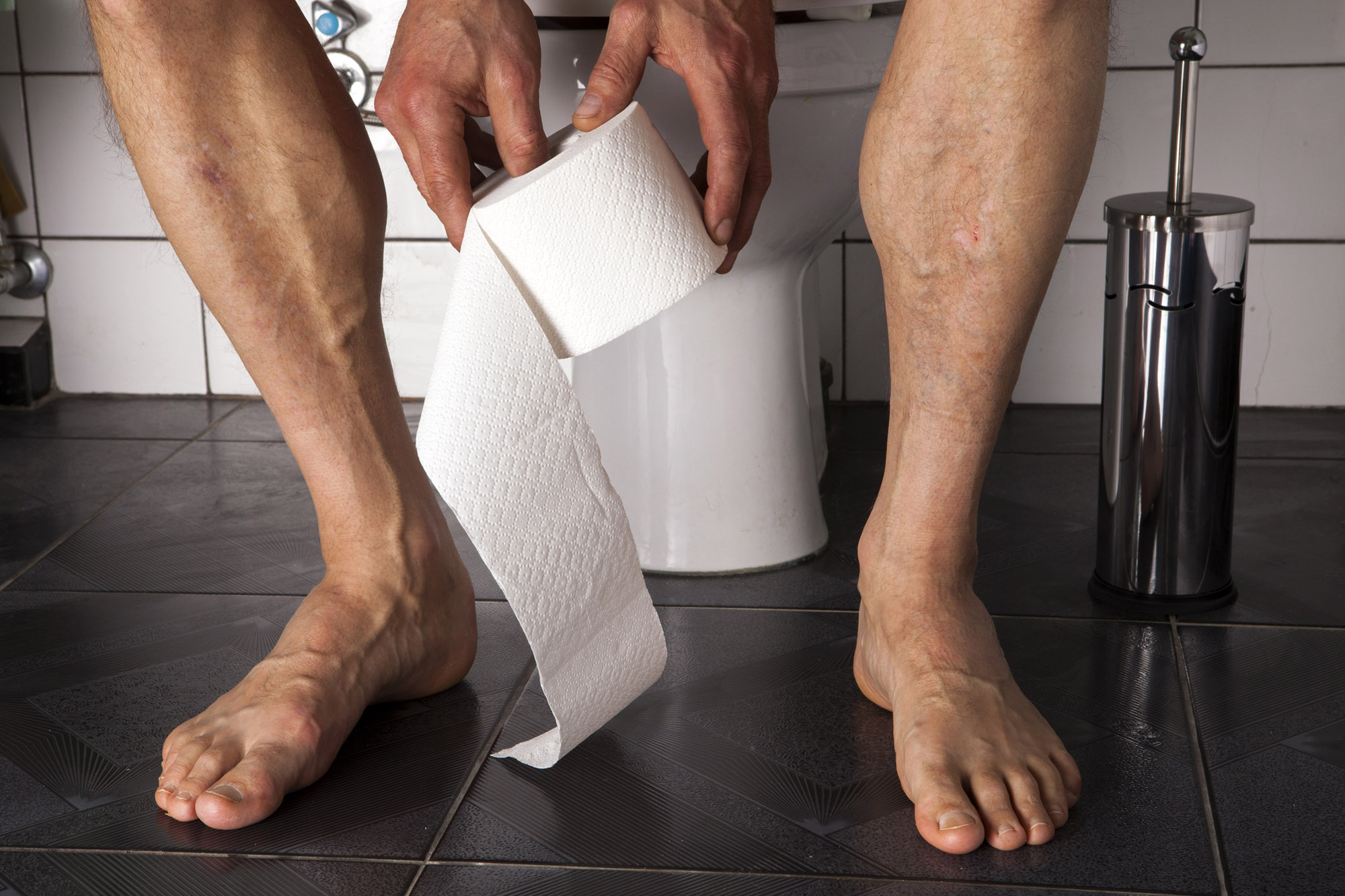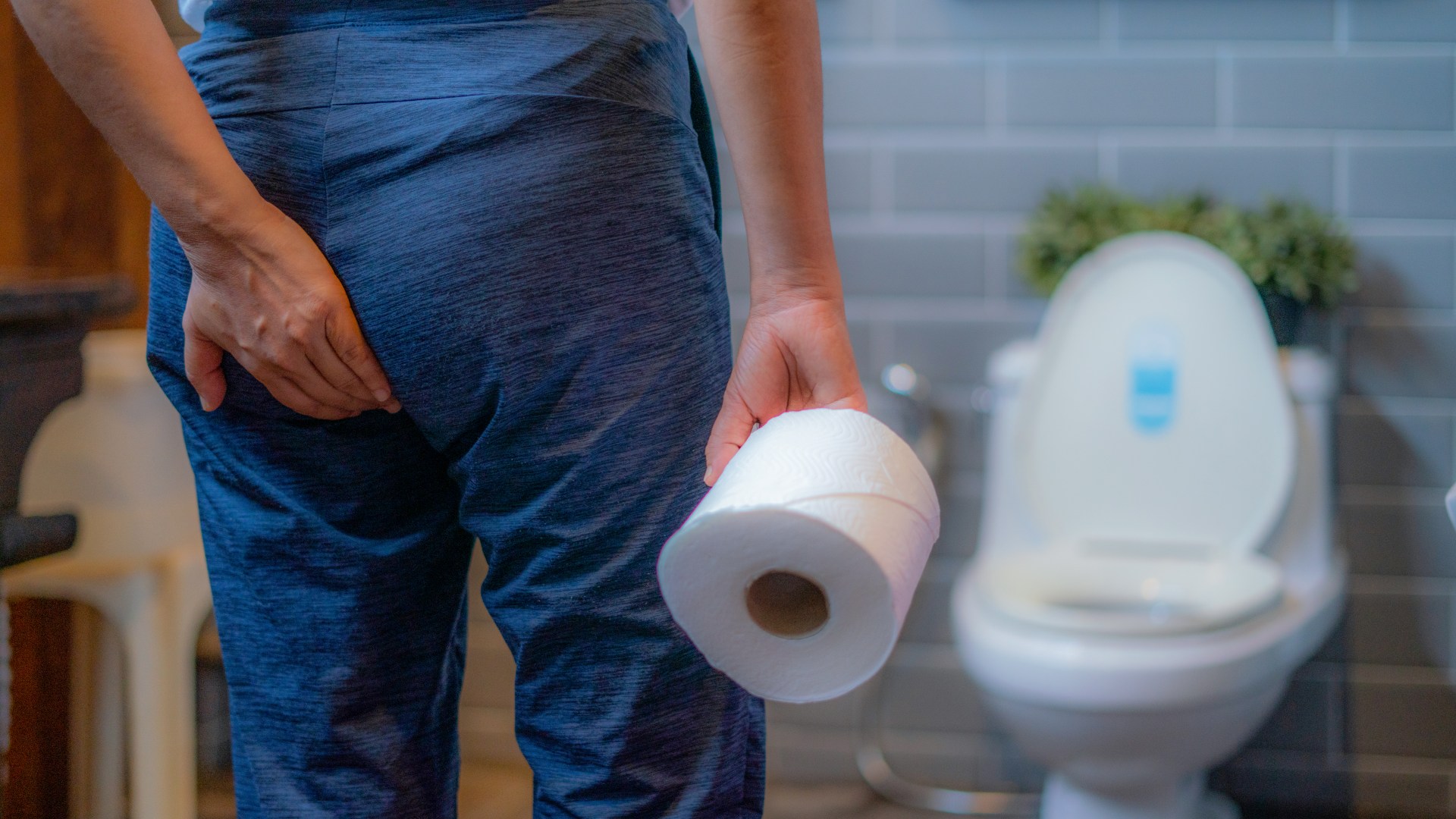

FAQs
When I Sneeze I Fart
Published: July 31, 2023
Get answers to your general questions about sneezing and farting. Find out why these bodily functions often go hand in hand and how to manage them effectively.
(Many of the links in this article redirect to a specific reviewed product. Your purchase of these products through affiliate links helps to generate commission for Under-tec.com, at no extra cost. Learn more)
Table of Contents
Introduction
Have you ever experienced the embarrassing and unexpected combination of sneezing and farting at the same time? It might sound humorous, but for those who have encountered this phenomenon, it can be quite mortifying. Referred to as “sneeze farting,” this peculiar occurrence has puzzled many individuals, leading them to wonder about the science behind it, its causes, and possible ways to prevent it.
Sneezing and farting are both natural bodily functions that serve different purposes. Sneezing is the body’s way of expelling irritants from the nasal passages, while farting is the release of built-up gas from the digestive system. Although these actions seem unrelated, sometimes they can unexpectedly coincide, resulting in a simultaneous sneeze and fart.
In this article, we will delve into the science behind sneeze farting, explore the potential causes of this phenomenon, and discuss ways to cope with it in public. Whether you have experienced sneeze farting yourself or are simply curious about this quirky bodily interaction, read on to satisfy your curiosity and gain a better understanding of this unique occurrence.
The Science of Sneezing and Farting
Before diving into the topic of sneeze farting, it’s essential to understand the science behind sneezing and farting individually.
Sneezing is a reflex action triggered by irritation in the nasal passage. When foreign particles such as dust, allergens, or irritants enter the nasal cavity, the body initiates a response to expel them. The irritation stimulates the trigeminal nerve, which then sends signals to the brainstem, triggering a chain reaction of muscular contractions. The diaphragm contracts, causing a rapid and forceful expulsion of air through the nose and mouth, resulting in a sneeze.
On the other hand, farting, also known as flatulence, is a normal part of the digestive process. When we eat or drink, we naturally swallow air, which can accumulate in the gastrointestinal tract. Additionally, bacteria in our intestines produce gases as they break down undigested food. The combination of swallowed air and intestinal gas leads to the buildup of pressure in the digestive system. Eventually, this pressure needs to be released, which occurs through the rectum, resulting in a fart.
While sneezing and farting might seem unrelated, they both involve the expulsion of air from different parts of the body. Sneezing primarily involves the expulsion of air from the nasal passages, while farting releases gas from the digestive system.
Now that we have a basic understanding of sneezing and farting, let’s explore how these two actions can sometimes occur simultaneously, giving rise to the phenomenon known as sneeze farting.
The Phenomenon of Sneeze Farting
Sneeze farting, as the name suggests, refers to the simultaneous occurrence of sneezing and farting. While it may seem like a rare and unusual phenomenon, many individuals have experienced this embarrassing and sometimes hilarious combination.
When we sneeze, our bodies go through a series of involuntary muscular contractions. These contractions can put pressure on our abdominal muscles and the surrounding area, including the digestive system. In certain cases, this increased pressure can trigger the release of gas from the rectum, resulting in a sneeze fart.
The exact circumstances that lead to sneeze farting can vary from person to person. Some individuals may find that certain factors increase their likelihood of experiencing this phenomenon. These factors can include the forcefulness of the sneeze, the amount of gas in the digestive system at the time, and individual variations in the body’s response to these simultaneous actions.
Sneeze farting can occur in a variety of settings – at home, at work, or even in public places. The embarrassment associated with sneeze farting often stems from the unexpected nature of the event and the potentially audible sound or odor that accompanies it. While it can be a source of personal embarrassment, it’s essential to remember that this is a natural bodily function and happens to everyone at some point.
It’s worth noting that sneeze farting is relatively harmless and typically does not require medical intervention. However, if you find that you are experiencing an excessive amount of sneeze farting or if it is accompanied by other symptoms such as abdominal pain or discomfort, it is advisable to consult a healthcare professional for further evaluation.
Now that we have explored the phenomenon of sneeze farting, let’s delve into some of the possible causes behind this unique bodily interaction.
Causes of Sneeze Farting
The occurrence of sneeze farting can be attributed to several factors, ranging from physiological mechanisms to external circumstances. While it may be difficult to pinpoint an exact cause in each individual case, here are some potential factors that may contribute to sneeze farting:
- Muscular Contractions: Sneezing involves forceful muscular contractions, including those in the abdominal area. These contractions can inadvertently stimulate the release of gas from the rectum, leading to a sneeze fart.
- Air Swallowing: When we sneeze, we often take in a deep breath before the expulsion of air. This inhalation of air can result in an increased amount of swallowed air, leading to an accumulation of gas in the digestive system. When combined with the muscular contractions during a sneeze, the excess gas may be expelled as a fart simultaneously.
- Gastrointestinal Gas: The presence of gas in the gastrointestinal tract is a normal part of digestion. Some individuals may naturally produce higher amounts of gas due to factors such as dietary choices, digestion speed, or gut bacteria composition. When excess gas is present during a sneeze, it can be released at the same time as the sneeze, resulting in a sneeze fart.
- Increased Abdominal Pressure: Certain activities or positions that increase abdominal pressure, such as coughing, laughing, or bending over, can also trigger a release of gas from the rectum during a sneeze. The increased pressure in the abdominal area can cause the simultaneous expulsion of both air and gas.
- Anatomical Factors: Individual variations in anatomical structures, such as a shorter distance between the nasal passages and rectum, may increase the likelihood of sneeze farting. These variations can result in a more direct pathway for the pressure and force generated during a sneeze to travel to the rectal area.
It’s important to remember that each person’s experience with sneeze farting may differ based on their unique circumstances. Factors such as the strength of the sneeze, the timing of the sneeze in relation to digestion, and individual body responses all play a role in the occurrence of sneeze farting.
Now that we have explored the potential causes of sneeze farting, let’s move on to discussing ways to treat and prevent this phenomenon.
Treatment and Prevention of Sneeze Farting
While sneeze farting is generally a harmless and natural occurrence, it can still be embarrassing for those who experience it. Fortunately, there are a few strategies you can try to help manage and minimize sneeze farting:
- Be Mindful of Your Posture: Maintaining good posture throughout the day can help reduce the pressure on your abdomen and minimize the chances of sneeze farting. Sit up straight and avoid slouching to promote proper digestion and airflow in your digestive system.
- Manage Your Diet: Certain foods can contribute to the production of excess gas. Pay attention to how your body reacts to different types of foods and try to identify any triggers. Common culprits include carbonated beverages, beans, broccoli, and cabbage. Limiting or avoiding these foods may help reduce the likelihood of sneeze farting.
- Practice Deep Breathing: Taking slow, deep breaths can help relax the muscles in your abdomen and minimize the chances of gas being released during a sneeze. Deep breathing exercises can also help reduce stress and anxiety, which can contribute to excessive swallowing of air.
- Avoid Swallowing Excess Air: Be mindful of habits that lead to swallowing excess air, such as chewing gum, drinking through straws, or talking while eating. Taking smaller bites and eating slowly can also reduce the amount of air you swallow, decreasing the potential for sneeze farting.
- Consider Over-the-Counter Remedies: If you find that sneeze farting is a persistent issue and is causing significant discomfort or distress, you can explore over-the-counter remedies such as antacids or digestive enzyme supplements. These products may help regulate digestion and reduce the production of excess gas.
It’s important to note that if sneeze farting is accompanied by other symptoms like abdominal pain, bloating, or changes in bowel movements, it’s advisable to seek medical advice. A healthcare professional can evaluate your specific situation and provide personalized guidance and potential treatment options.
Remember, sneeze farting is a normal bodily function that happens to everyone at some point. While it can be embarrassing, finding ways to manage and prevent sneeze farting can help you feel more at ease in social and public settings.
Now let’s move on to discussing how to cope with sneeze farting in public to help minimize any potential embarrassment.
Coping with Sneeze Farting in Public
Experiencing sneeze farting in public can be an embarrassing situation. Here are some tips to help you cope with sneeze farting and minimize any potential embarrassment:
- Stay Calm and Carry On: Remember that sneeze farting is a natural bodily function and happens to everyone at some point. Try to remain calm and composed if it occurs in public. Remind yourself that most people will understand and empathize with the situation.
- Find a Private Space: If possible, excuse yourself to a private space, such as a restroom or designated area, where you can release the gas discreetly. This can help alleviate any discomfort or embarrassment associated with sneeze farting in front of others.
- Use Discretionary Measures: If finding a private space is not feasible, you can use discreet methods to minimize the impact of sneeze farting. For example, you can cough or clear your throat at the same time to help mask the sound. You can also try to position yourself in a way that minimizes any potential odor.
- Carry Accommodating Items: Carrying items such as tissues, handkerchiefs, or even a small bottle of air freshener can come in handy if you experience sneeze farting in public. These items can help you manage any potential effects discreetly and quickly.
- Practice Good Hygiene: Maintaining proper hygiene can also help minimize any potential discomfort or embarrassment. Washing your hands regularly and using hand sanitizer after sneezing or passing gas can help you feel more confident in public settings.
- Develop a Sense of Humor: Sometimes, laughter can be the best way to diffuse an embarrassing situation. Develop a sense of humor about sneeze farting and learn to laugh it off. Remember that it is a natural bodily function, and everyone has their fair share of embarrassing moments.
It’s important to prioritize your comfort and well-being when coping with sneeze farting in public. Remember, most people will understand and empathize with the situation, so try not to be too hard on yourself.
Now that we have discussed various strategies for coping with sneeze farting in public, let’s summarize the key points we have covered so far.
Conclusion
Sneeze farting, as awkward as it may seem, is a perfectly natural bodily phenomenon. Sneezing and farting are both normal functions that serve specific purposes in our bodies. When they happen simultaneously, it can lead to the unexpected combination that we call sneeze farting.
Understanding the science behind sneezing and farting helps us comprehend why these two actions can occur together. Factors such as muscular contractions, air swallowing, gastrointestinal gas, increased abdominal pressure, and individual anatomy all play a role in the occurrence of sneeze farting.
While it may be embarrassing to experience sneeze farting in public, there are ways to cope with it. Practicing good posture, managing your diet, being mindful of swallowing excess air, and finding private spaces or using discretion can help minimize any potential discomfort or embarrassment. Developing a sense of humor and remembering that everyone experiences embarrassing moments can also contribute to a more positive outlook.
It’s essential to prioritize your comfort and well-being when it comes to sneeze farting. If you experience excessive or persistent sneeze farting, or if it is accompanied by other symptoms, it’s advisable to consult a healthcare professional for further evaluation.
Remember, sneeze farting is a natural bodily function that happens to everyone at some point. While it may cause embarrassment in certain situations, understanding the causes and employing coping strategies can help you feel more at ease and confident in public settings.
So, the next time you find yourself in a sneeze farting situation, take a deep breath, stay calm, and remember that it’s just a quirky part of being human.










